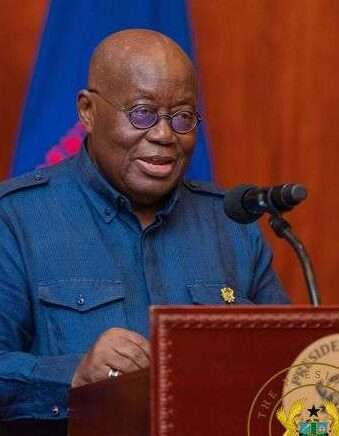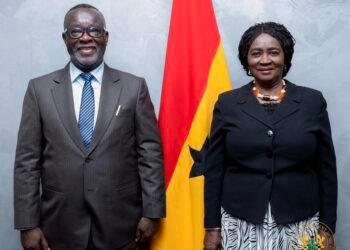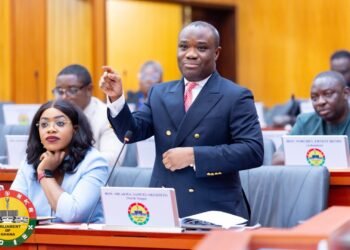Amid growing backlash from the New Patriotic Party (NPP), the issue of retaliatory politics has taken center stage in Ghana’s constitutional discourse following the recent suspension of the Chief Justice.
However, according to Stan Xoese Dogbe, Deputy Chief of Staff in charge of Operations at the presidency, these accusations are not only misplaced—they’re also an unintended confession.
Addressing protestors of the “Save the Judiciary” demonstration on behalf of President John Dramani Mahama, Dogbe offered a sharp rebuttal to allegations that the recent suspension of the Chief Justice is driven by political vengeance.
“The NPP referencing retaliatory politics is an admission that the eight years of former President Akufo-Addo and former Vice President Mahamudu Bawumia were not the best.
“You can be assured, however, that President Mahama, as every Ghanaian knows, is not that politician.”
Stan Xoese Dogbe
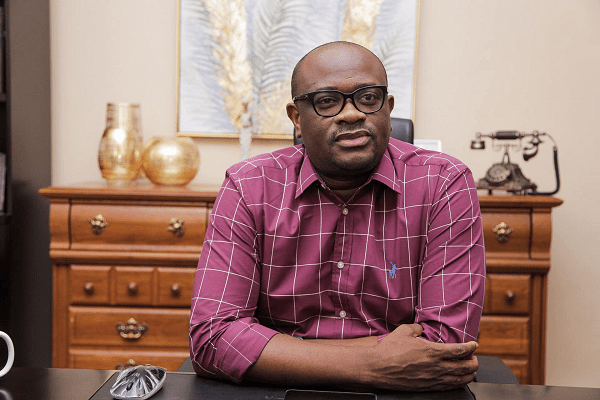
Dogbe stressed that the government’s handling of the Chief Justice matter is firmly rooted in constitutional principles and due process, not political retaliation.
He commended the peaceful conduct of the demonstration, viewing it as a clear indication of the democratic environment the Mahama administration seeks to revive and strengthen.
Retaliatory Politics Narrative, Misguided
Midway through the protest response, Dogbe turned the focus squarely on the constitutionality of the suspension.
He reminded critics that the current process mirrors one initiated by former President Akufo-Addo before leaving office.
“Before former President Akufo-Addo left the presidency, he himself had started a certain process where issues were brought to him about the Chief Justice, and he referred them to the Council of State. And that is what President Mahama has done.”
Stan Xoese Dogbe
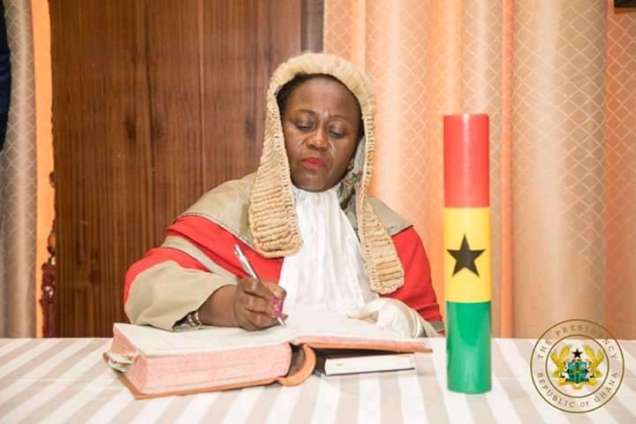
He was firm in stating that “it is not about retaliating against something that was done by the previous administration against President Mahama or the NDC.”
He noted that instead, the Mahama government is simply continuing a process within the framework of the 1992 Constitution, stressing that the ongoing process concerning the Chief Justice is firmly grounded in democratic procedure.
Dogbey explained that once the committee mandated to investigate the matter concludes its work, the outcome—whether favorable or not—will carry legal weight and be binding on the President.
This, he emphasized, reflects a continued respect for the advisory role of institutions like the Council of State, whose guidance in such matters is constitutionally upheld and not subject to personal or political discretion.
The essence of Dogbe’s message was clear: the Mahama administration seeks to depoliticize sensitive governance matters by grounding decisions in constitutional legitimacy, not partisan payback.
Ghana’s Democratic Space Remains Open and Free
Despite the political tensions surrounding the Chief Justice’s suspension, Stan Dogbe reiterated the administration’s commitment to peaceful civic engagement.
Referencing the seamless protest held over the weekend, he remarked that there was “no attempt at preventing you from expressing yourselves.”
He assured demonstrators that this openness would remain a central feature of Mahama’s governance.
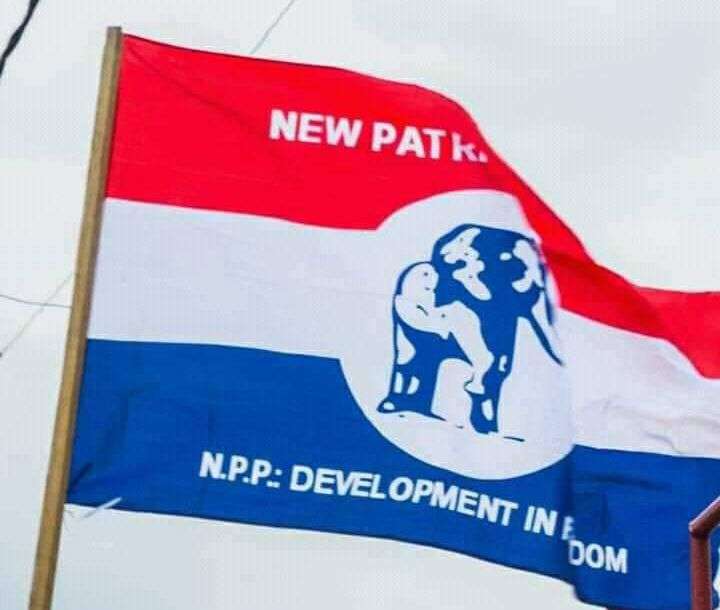
“We will continue to allow for that peaceful expression of ourselves in this country under President Mahama. Nobody is going to inhibit or stop anybody from doing that.”
Stan Xoese Dogbe
Dogbe concluded on a note of unity and nation-building, framing the petition not as an adversarial gesture but as a contribution to collective governance.
“That should tell you that President Mahama, in just less than 120 days, has demonstrated how he is going to save the democracy of Ghana. He’s going to grow, he’s going to grow the democracy of this country, and we are going to be together.”
Stan Xoese Dogbe
He assured that the government would address the concerns outlined in the petition in due course.
In a political climate marked by deep divisions, Dogbe struck a balance between firmness and openness—rejecting partisan accusations while affirming the administration’s commitment to inclusive governance and constitutional fidelity.
In the end, the success of this approach in countering the retaliatory politics narrative will hinge on both public trust and the transparency of the judicial proceedings in the weeks ahead.

